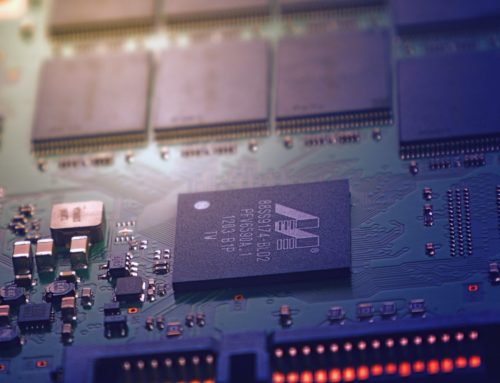In a dance of shadows and smoke, the geopolitical stage once again witnesses a somber act of tragedy unfold. As the region awakens to yet another chapter in the dark chronicles between Lebanon and Israel, the echoes of conflict resound through the dusty alleyways of Beirut. Searing through the tapestry of the night, news of a senior Hezbollah commander falling victim to an Israeli airstrike ripples across the international airwaves like a silent thunder. With a heavy heart, we find ourselves immersed in the merciless realities that continue to shape the ever-turbulent landscape of the Middle East. In this bewildering tale of power, politics, and proxy wars, we delve into the details surrounding this recent loss, navigating the eerie territory between fact and conjecture, as we strive to shed light on the darkness that shrouds this lamentable event.
Table of Contents
- 1. “A Devastating Blow: Senior Hezbollah Commander Succumbs to Israeli Airstrike in Lebanon”
- 2. “In the Crosshairs: The Controversial Elimination of a Prominent Hezbollah Figure”
- 3. “A Grave Escalation: Lebanon Mourns the Loss of a Resolute Hezbollah Leader”
- 4. “From the Ashes: A Closer Look at the Ramifications of Israel’s Attack on a Senior Hezbollah Commander”
- 5. “Unearthing Tensions: The Killing of a Key Hezbollah Operative Strains Lebanese-Israeli Relations”
- 6. “Fanning the Flames: Exploring the Deepening Crisis Triggered by the Assassination of a Senior Hezbollah Commander”
- 7. “Crisis Unleashed: How the Elimination of a Prominent Hezbollah Figure Intensifies Regional Unrest”
- 8. “Silencing the Voice: Assessing the Long-term Impact of the Israeli Airstrike on Lebanon’s Hezbollah Leadership
- Q&A
1. “A Devastating Blow: Senior Hezbollah Commander Succumbs to Israeli Airstrike in Lebanon”
As tensions continue to escalate in the volatile region of Lebanon, a recent Israeli airstrike has delivered a devastating blow to Hezbollah, the Lebanese militant group. Reports confirm that a senior Hezbollah commander has tragically succumbed to the lethal attack, adding a new layer of complexity to an already volatile situation.
In this unexpected turn of events, the loss of the senior Hezbollah commander presents a significant setback for the organization. The impact of this airstrike will undoubtedly reverberate throughout Hezbollah’s ranks, leaving them in a state of uncertainty and prompting them to reassess their strategies moving forward. Here are the key implications of this tragic development:
- Power vacuum: The loss of such a high-ranking Hezbollah leader leaves behind a noticeable void within the organization’s command structure. This vacuum in leadership could potentially lead to internal power struggles within Hezbollah as they seek to fill the gap left by their fallen comrade.
- Momentum shift: The successful Israeli airstrike not only deals a blow to Hezbollah’s morale but also causes a shift in the overall momentum of the conflict in Lebanon. This development may embolden Israeli forces and their allies while causing apprehension among Hezbollah fighters, potentially altering the dynamics of the ongoing conflict.
- Retaliation concerns: Hezbollah will undoubtedly feel compelled to retaliate against this Israeli attack, seeking to avenge the death of their senior commander. Concerns arise about the potential escalation of violence, as such acts often trigger a dangerous cycle of revenge and counter-revenge between the two sides.
In conclusion, the loss of a senior Hezbollah commander due to an Israeli airstrike has dealt a severe blow to the organization. The aftermath of this tragic event remains uncertain, but it undoubtedly brings significant implications for Hezbollah’s leadership, momentum, and future actions. The region now grapples with the potential consequences and further escalation as tensions rise among the parties involved.
2. “In the Crosshairs: The Controversial Elimination of a Prominent Hezbollah Figure”
Hezbollah, a powerful Shia Islamist political and military organization based in Lebanon, found itself at the center of a storm of controversy when one of its prominent figures became the target of elimination. The incident, which unfolded in the heart of Beirut, sent shockwaves throughout the country and the wider Middle East. Here are some key details surrounding this highly controversial event:
- High-profile target: The Hezbollah figure in question was none other than Mustafa Badreddine, a senior military commander within the organization. Badreddine was infamous for his involvement in numerous acts of terrorism across the region, including the bombing of the U.S. Marine barracks in Beirut in 1983, which claimed the lives of 241 American servicemen.
- Mysterious circumstances: Badreddine’s elimination was shrouded in mystery, leaving experts and analysts puzzled. While some sources attribute his death to a targeted Israeli airstrike, others suggest the possibility of internal rivalries within the ranks of Hezbollah. The conflicting narratives surrounding his demise have only further fueled speculation and added to the controversy.
- Political ramifications: The elimination of such a prominent Hezbollah figure undoubtedly had significant political ramifications. Not only did it expose the vulnerability of a highly revered organization, but it also raised questions about the stability of Lebanon and the wider region. The incident acted as a catalyst for renewed tensions between Hezbollah and its adversaries, pushing the already volatile region closer to the brink of escalation.
The controversial elimination of Mustafa Badreddine epitomizes the ongoing power struggle and bloodshed in the Middle East. As the region grapples with complex geopolitical dynamics and factional rivalries, it remains to be seen how this event will shape the future of Hezbollah and the fragile stability of Lebanon.
3. “A Grave Escalation: Lebanon Mourns the Loss of a Resolute Hezbollah Leader”
As news spread across Lebanon, a heavy air of mourning settled upon the nation. The tragic loss of a resolute Hezbollah leader took the country by storm, sending shockwaves through the already fragile political landscape. Amidst escalating tensions, the passing of this influential figure has the potential to drastically shift the dynamics of power within the region.
Known for his unwavering commitment to the Hezbollah cause, this exceptional leader had become synonymous with the organization’s resilience and determination. With his departure, Lebanon faces an uncertain future as it grapples with the aftermath.
- Political upheaval: The absence of this Hezbollah leader will inevitably leave a void within the political framework. As a prominent force in combating external pressures, his absence has the potential to weaken the organization and give rise to competing factions vying for control.
- Security concerns: The loss of such an influential figure will undoubtedly impact the nation’s security landscape. As tensions rise, concerns loom over potential spillover effects and the potential for increased violence in the region.
- Regional implications: The significance of this event extends far beyond Lebanon’s borders. The leader’s demise has sparked apprehension among neighboring countries and heightened fears of an escalating conflict between Hezbollah and its adversaries.
Lebanon finds itself at a critical crossroads, grappling with grief while simultaneously facing the challenges that come with the absence of a resilient leader. This monumental loss has plunged the country into a state of uncertainty, with the ripple effects reverberating throughout the entire region.
4. “From the Ashes: A Closer Look at the Ramifications of Israel’s Attack on a Senior Hezbollah Commander”
The attack on a senior Hezbollah commander by Israel has sent shockwaves throughout the region and has far-reaching consequences that demand close examination. This bold move has not only heightened tensions between two long-standing adversaries but has also set off a chain of events that could potentially reshape the power dynamics in the Middle East.
Unraveling the Aftermath: The aftermath of this attack has been nothing short of chaotic, with both sides scrambling to respond. Here’s a closer look at the ramifications:
- Escalation of Conflict: The attack has escalated the already fraught relationship between Israel and Hezbollah, sparking fears of an all-out war. Both parties have engaged in retaliatory strikes, resulting in considerable loss of life and infrastructure damage.
- Regional Instability: This incident has stoked existing tensions in the region, further destabilizing the already volatile Middle East. The attack has prompted countries such as Iran and Syria to express solidarity with Hezbollah, adding fuel to the fire and potentially dragging other nations into the conflict.
- Political Fallout: The political fallout from this attack has been significant. In Israel, the decision to target a senior Hezbollah commander has been met with both support and criticism. Domestically, it has exposed deep divisions within the Israeli government and society as a whole.
5. “Unearthing Tensions: The Killing of a Key Hezbollah Operative Strains Lebanese-Israeli Relations”
In recent events, the killing of a prominent Hezbollah operative has triggered a series of tensions that are threatening to strain the already delicate relationship between Lebanon and Israel. This incident is causing ripples of concern throughout the region, as both countries face the possibility of heightened hostilities.
Here are some key points to consider:
- Impact on Hezbollah: The elimination of this high-ranking Hezbollah member is a significant blow to the organization. This operative held deep connections and extensive knowledge, making his loss a major setback for the group. As a result, the killing has sparked outrage within Hezbollah ranks, leading to increased calls for retaliation against Israel.
- Israeli Defense Concerns: Israel has justified this action as a necessary measure in efforts to protect national security. However, this incident exacerbates existing security concerns for the country. Israeli defense officials fear potential retaliation from Hezbollah and are closely monitoring the situation to ensure preparedness for any escalation that may arise.
- Lebanon’s Dilemma: Lebanon, a nation facing ongoing political and economic challenges, finds itself trapped in a precarious situation. As tensions rise between Hezbollah and Israel, Lebanon’s fragile stability is put to the test once again. The government must strike a delicate balance between maintaining national security, safeguarding internal peace, and avoiding getting drawn into a larger conflict that would further deteriorate the country’s already fragile state.
As this situation unfolds, all eyes remain fixated on the evolving dynamics of Lebanese-Israeli relations. The aftermath of this event will undoubtedly have significant implications for regional stability, further entrenching the complex web of tensions that persist in the Middle East.
6. “Fanning the Flames: Exploring the Deepening Crisis Triggered by the Assassination of a Senior Hezbollah Commander”
The assassination of a senior Hezbollah commander has ignited a dangerous spark that threatens to engulf the region in further turmoil. The shadowy and secretive nature of the killing has raised suspicions and fears among both pro-Hezbollah and anti-Hezbollah factions, intensifying the ongoing crisis.
As news of the assassination spreads, a wave of anger and grief has overtaken Hezbollah supporters, who view the death as a severe blow to their cause and a direct attack from their adversaries. This has led to an increase in protest activities, with demonstrations of solidarity and heightened calls for retaliation. Tensions between Hezbollah and its rivals have reached a boiling point, resulting in a volatile atmosphere that cannot be easily defused.
- The assassination has both short-term and long-term implications for the region:
- Immediate Consequences: The immediate aftermath of the assassination saw a surge in violence, with clashes erupting in various parts of the country. This unrest not only threatens to escalate into a full-blown conflict but also risks dragging neighboring countries into the crisis.
- Escalating Sectarian Divide: The assassination has magnified existing sectarian divisions and deepened the longstanding animosity between Sunni and Shiite communities. As tensions rise, concerns grow over the potential for further radicalization and polarization within society.
- Regional Power Dynamics: The killing of a senior Hezbollah commander has reverberated across the region, reshaping existing alliances and potentially triggering a shift in regional power dynamics. Key players such as Iran, Lebanon, Saudi Arabia, and Israel are closely monitoring developments, as they assess the ramifications for their own interests.
Amidst this storm of uncertainty and volatility, finding a peaceful resolution seems increasingly challenging. The question remains: can the crisis be contained before it engulfs the entire region in flames, or will it continue to fuel the fire of conflict for years to come?
7. “Crisis Unleashed: How the Elimination of a Prominent Hezbollah Figure Intensifies Regional Unrest”
The recent elimination of a prominent Hezbollah figure has sent shockwaves through the already-volatile Middle East region, exacerbating an already unstable situation. As tensions between rival factions and external powers mount, experts fear that this event marks a turning point in regional unrest. The ramifications of this crisis are far-reaching and have the potential to reshape dynamics not only within Lebanon but also the broader Middle East.
1. Escalating Sectarian Divisions: The elimination of such a prominent Hezbollah figure has ignited deep-seated sectarian tensions within Lebanon. The Shia community, where support for Hezbollah runs deep, is left grappling with a sense of injustice and a call for retaliation. Simultaneously, this event has intensified existing divisions between Hezbollah and their Sunni rivals, further fueling the sectarian animosity that has plagued the region for years.
2. Geopolitical Ripples: By targeting and eliminating a major Hezbollah figure, this crisis reverberates beyond Lebanon’s borders and has significant geopolitical implications. Regional powers with vested interests in the Lebanese political landscape, such as Iran and Saudi Arabia, now find themselves at odds. The elimination has amplified their discord, kicking off a new wave of proxy conflicts that further destabilize the region.
8. “Silencing the Voice: Assessing the Long-term Impact of the Israeli Airstrike on Lebanon’s Hezbollah Leadership
In the aftermath of the Israeli airstrike on Lebanon’s Hezbollah leadership, the international community remains deeply concerned about the long-term consequences of this military action. This targeted attack, which aimed to weaken Hezbollah’s command structure and eliminate key figures, has undoubtedly sent shockwaves through the region. As analysts and experts closely examine the aftermath, numerous factors need to be considered in order to assess the true impact of this operation.
Complex power dynamics: The Israeli airstrike has fundamentally altered the delicate power dynamics within Lebanon and the broader Middle East. Hezbollah, a powerful political and military force in Lebanon, is now forced to confront a significant leadership vacuum. Without their experienced commanders, the group may face challenges in maintaining its operational effectiveness and unity. Moreover, this attack has caused a ripple effect on the region, potentially triggering a renewed cycle of violence and escalating tensions between Israel, Lebanon, and Iran.
- Internal repercussion: The targeted killing of Hezbollah leaders would undoubtedly leave a void in the organization’s leadership structure. This vacuum may spark internal power struggles and divisions within the group, as potential successors vie for control and influence. If internal fragmentation occurs, it could weaken Hezbollah’s ability to project its military strength and interfere in regional conflicts, posing an opportunity for Israel and other neighboring countries.
- Strength of retaliation: An Israeli airstrike of this magnitude will likely not go unanswered. Assessing the retaliatory responses from both Hezbollah and its allies, such as Iran, is crucial in evaluating the lasting impact of this attack. The potential for increased aggression and retaliatory strikes remains a concern, raising questions about regional stability, as well as the potential for wider conflict.
- Repositioning of global powers: The Israeli strike has the potential to shift the balance of power and influence in the Middle East. Superpowers and regional actors alike will be closely observing the aftermath, seeking opportunities to realign political alliances or exploit the vulnerabilities of involved parties. An assessment of how these geopolitical shifts unfold will help determine the long-term impact of the airstrike on both regional stability and international relations.
As the dust settles, the repercussions of the Israeli airstrike on Lebanon’s Hezbollah leadership are only just beginning to emerge. The true extent of its impact will be revealed in the coming months as the region recalibrates its power dynamics and charts a new course in this delicate geopolitical landscape.
As the dust settles over the contentious skies of Lebanon, the solemn echoes of yet another chapter in a never-ending conflict reverberate through the war-torn nation. The recent Israeli airstrike claiming the life of a senior Hezbollah commander has once again plunged the region into a disheartening cycle of grief and uncertainty.
A cacophony of voices rises in the aftermath, weaving a tapestry of emotions that defy borders and allegiances. Some mourn the fallen commander as a hero and a martyr, praising his unwavering dedication to the cause. Others find solace in this development, viewing it as a strategic victory against an organization they condemn as an imminent threat.
Whether one perceives this incident through the lens of justice or retaliation, it lays bare the deep-rooted wounds that stretch across the rugged landscape of Lebanon. The nation, constantly caught in the crosshairs of regional power struggles, stands as a symbol of resilience in the face of adversity. Its people, carrying the heavy burden of prolonged violence, bear witness to a history riddled with pain and heartache.
In this delicately balanced aftermath, a fragile peace hangs by a thread. Lebanon, a mosaic of diverse cultures and traditions, longs for the tranquility that has eluded it for far too long. The tragedy that unfolded in this airstrike only serves to deepen the cracks that divide an already divided land. Communities once united now find themselves grappling with the tragic consequences of political turmoil.
But amidst the uncertainty, there flickers a spark of hope. The resilient spirit of the Lebanese people, time and again, has defied the odds. Their tireless efforts to rebuild shattered lives and navigate treacherous terrain embody a profound yearning for peace, stability, and a future free from the ravages of conflict.
As the sun sets over the bruised sky, whispers of a better tomorrow begin to rise. It is in these moments of darkness and despair that the human spirit finds strength and courage. Only time will tell if the tragic loss of a senior Hezbollah commander will further fuel the flames of discord or ignite a collective desire for lasting peace.
With infinite potential for healing and transformation buried within their storied past, the Lebanese people embody a resilient spirit that refuses to be extinguished. Even in the darkest of hours, they dare to envision a brighter, harmonious future—a future where the echoes of sorrow are replaced by the melodies of peace.




Leave A Comment